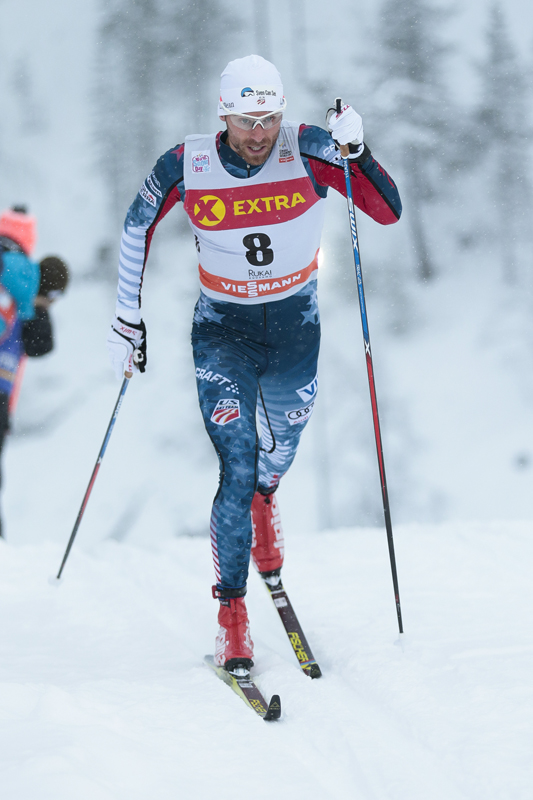
DAVOS, Switzerland — The evening before the skate sprint in Davos – Andy Newell’s last World Cup competition of 2016 – the U.S. Ski Team veteran stood in the dark outside the temporary trailer his team was using as a wax cabin and talked about doping.
In particular, he talked about systematic doping in Russia and the revelations of the McLaren report, which had dropped just the previous day.
“It’s unfortunate,” Newell said. “You know that there are athletes who have been under suspicion from this McLaren report who are still racing both in biathlon and cross-country, and they are still on the World Cup. I think that is a shame because they are taking away valuable opportunities from other people.”
When Canadian law professor Richard McLaren filed his report on Friday, his team also posted online much of the evidence they had used to build their case.
The names of athletes were blinded in all the documents, replaced by alpha-numeric codes. But connecting the dots between different documents, it was easy to guess who some of the codes referred to.
For instance, A0467: probably Alexander Legkov. In a document listing Russian national team athletes competing in the 2014 Olympics in Sochi, A0467 is referred to as winning gold in the 50 kilometer mass start. That could only refer to one person.
In another document, athlete A0467 is listed as testing positive for the steroid budesonide. The document shows that the test was reported as “negative” in the World Anti-Doping Agency’s (WADA) test management database, ADAMS. If that’s true, it means that Legkov was never suspended after testing positive for a banned performance-enhancing drug.
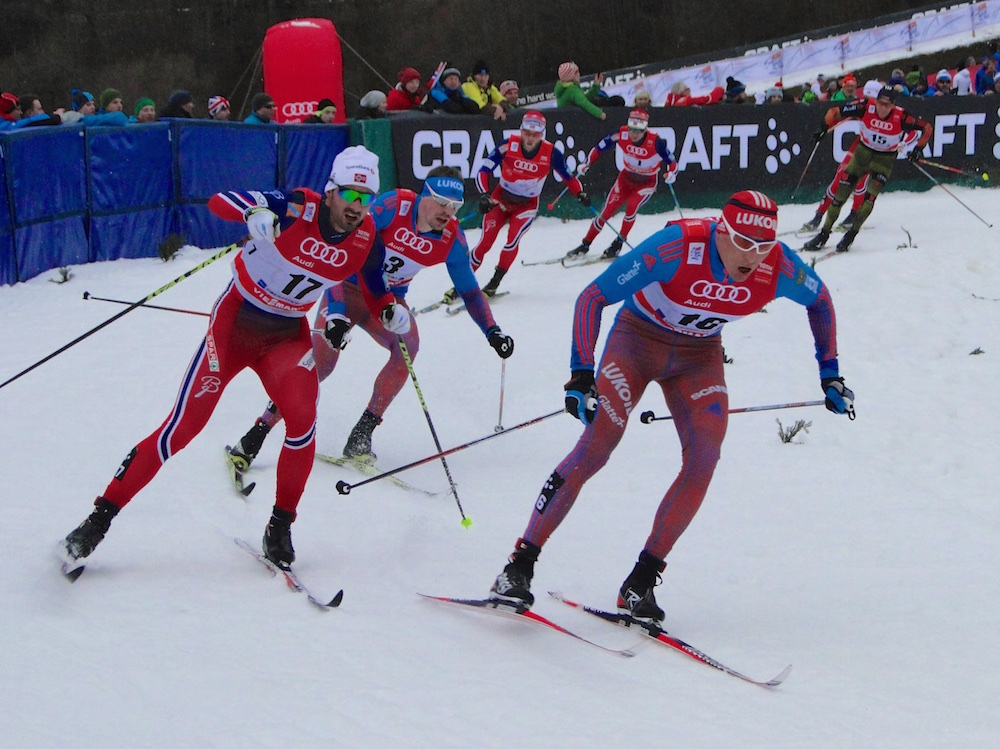
The Russian, who has maintained his innocence since being named in a New York Times investigation months ago, was in Davos. That day he had placed fifth in the 30 k skate. Newell and others wrestled with that.
“I do still believe in some sort of rule by law,” Newell’s teammate Noah Hoffman had said just after placing 44th in that 30 k. “It needs to be consistent and transparent, and absolutely every athlete has a right to protest any findings. I can’t imagine anything worse than being accused of something that you didn’t do. As a clean athlete, being labeled a doper would be my worst nightmare. … but I want a commitment, I want a showing of support [in the investigation].”
Shortly after Hoffman was interviewed, Legkov walked through the mixed zone, where radio, newspaper, and online journalists clamored behind a makeshift fence, and did not take questions.
Many of the documents uploaded as part of the evidence packet contain inconsistencies. The documents were also uploaded without metadata, making it difficult to judge their provenance or reliability. When were they created, by whom and why? Were they planning documents or notes taken after the fact?
The documents, along with an index of which names correspond to which code numbers, were forwarded to relevant international federations (like the International Ski Federation, FIS). Those organizations will have their work cut out for them sifting through the evidence and trying to tease out unimpeachable facts.
If they find that anti-doping rule violations have occurred, they are responsible for determining the sanctions and consequences, amending results from international competitions, and redistributing prize money.
But regardless of whether an athlete such as Legkov doped or not – or whether that can be proven, which is a different question – he and others appear in the documents multiple times.
And more than any individual case, it’s the volume of athletes involved that impressed World Cup competitors interviewed last weekend. McLaren said that more than 1,000 Russian athletes across multiple sports benefitted from having their samples manipulated or their negative tests “disappeared” in recent years.
“I think a lot of us are surprised just by the sheer numbers of people involved,” Newell said.
“I’m not shocked to read that there’s cheating going on at the highest level,” Canadian World Cup Team member Devon Kershaw said. “To be honest, I think that anyone who is shocked hasn’t read the long list of athletes from certain countries that are busted for really, really bad drugs. I’d say the thing that really shocked me or disappointed me was really the depth of it, and how sophisticated it all was to cheat.”
The Ripple Effect
The implications of that number – 1,000 athletes — is huge.
“You have people out here that are racing– you know, the ripple effect is amazing,” Newell said. “There could be five or six skiers on the start list that shouldn’t be starting because they have made bad choices in the past.”
The emotional cost of an Olympic medal awarded too late, in a makeshift ceremony away from the cheering crowd, has been well documented, especially in light of the International Olympic Committee’s (IOC) re-testing scheme which has resulted in over 100 retroactive disqualifications from the 2008 and 2012 Olympics (not just of Russian athletes, either).
So, too, has the economic implication of missing a medal moment. The difference between being on the podium or not carries a high cost in terms of prize money and sponsorship. It may affect an athlete’s desire or even ability to continue their career, especially in less lucrative sports.
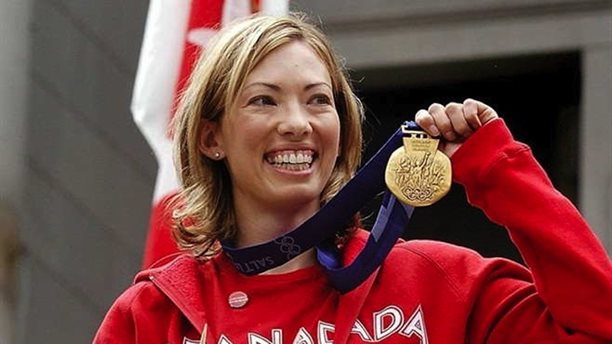
ESPN’s Bonnie Ford, in her extensive investigation of retroactively-awarded Olympic medals, called this “the butterfly effect of an altered trajectory.”
But it’s not just the best of the best whose results will be altered should 1,000 athletes, including some who were juniors at the time, be cited for doping violations. It’s also the athletes finishing tenth, 20th, 30th, or 40th in a race.
“That affects people’s criteria,” Newell explained. “There are athletes that might miss a chance to race at World Championships because they didn’t achieve a certain result. So the ripple effect goes way down the start list. It’s really a big ripple effect, which is sad. That’s why I think athletes who are under suspicion shouldn’t be allowed to start these kind of races.”
Many teams use specific results as criteria for World Championships and Olympic selection, as well as national team nominations. For instance: the U.S. Ski Team’s 2016 national team criteria required a top-50 overall World Cup ranking, a top-30 Sprint Cup or Distance Cup ranking, or podiums at U23 or Junior World Championships.
And this season, a top-eight finish in certain race formats on the World Cup earns a spot at World Championships, regardless of how many athletes reach other criteria.
To score World Cup points requires a top-30 finish in a race. What if a 32nd-place finish was really a 28th-place finish, and points were scored where they weren’t before?
Even more points are awarded at the top of the result sheet. What if a 10th-place finish was really an eighth-place finish? Or fifth-place finish was really a third-place finish? How many careers would be changed?
A Silent Federation
Many skiers tried not to think about those questions over the weekend, or to wonder if the athlete in their sprint heat was connected to a particular alpha-numeric code in the McLaren report’s evidence packet.
“It doesn’t change how I feel, how I attack every weekend,” Newell said. “Every weekend that I come to a World Cup is an opportunity to do my best and an opportunity to win. I am not really thinking of my competition, whether that’s who is next to me on the start line, what country they are from, or whether they are a suspicious name or not. I’m not thinking about all that on race day.”
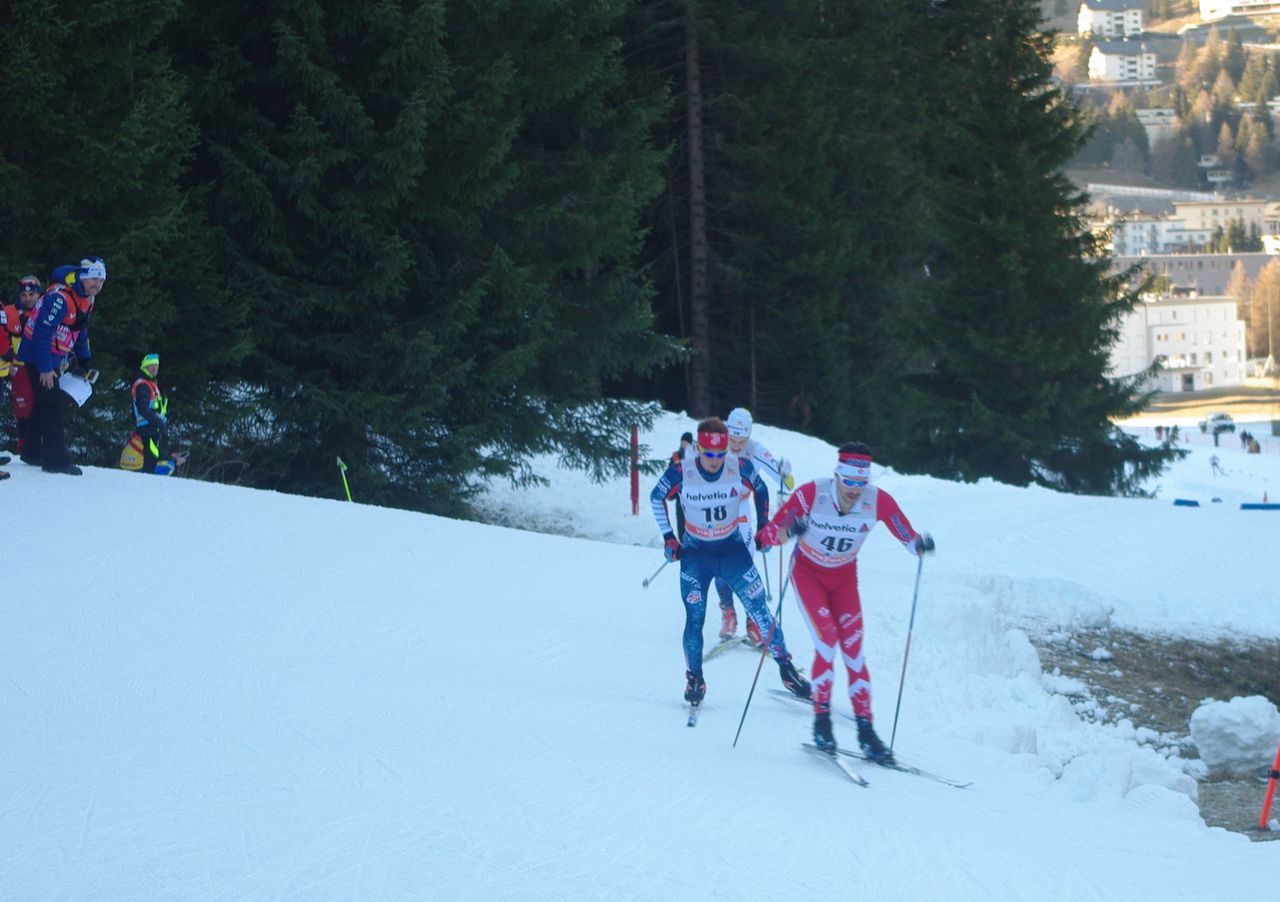
“I’ve taken the attitude that I’m trying to be the best that I can, ethically and cleanly and taking care of me and my stuff,” Hoffman agreed. “And so, I encourage FIS and the IOC to be decisive and transparent and to take significant action to clean up sport. But it’s not my job. It doesn’t affect me.”
And yet, at a FIS-sanctioned World Cup, athlete after athlete voiced their desire for a strong response from the federation.
“It’s discouraging to me,” said the U.S. Ski Team’s Ida Sargent. “I kind of think of sport as this inspiring thing. So I think this is the moment that we need to take a stand and clean it up… it should be a very strong stance. This is the moment. I hope that those with the power will go where they need to go now.”
So far, FIS has not released any statement about the McLaren report via press release or any official channel. They emailed a statement to FasterSkier and other members of the media when specifically asked about the matter, but declined to answer follow-up questions.
“Until we have received this information and reviewed the report, we cannot give any indication of timelines,” FIS Secretary General Sarah Lewis wrote in an email on Friday. “By the end of next week we hope to have further information about our next steps, subject to when we receive the summaries from WADA.”
By comparison, the International Bobsleigh and Skeleton Federation released a short press release the day the McLaren Report dropped, while the International Biathlon Union took until Sunday to publicize their own short statement.
“There hasn’t been a FIS response so far, so it’s hard to be satisfied,” Kershaw said.
But then he capitulated, slightly.
“It’s only Day 2, and they are trying to get their ducks in order,” he continued. “But there’s some pretty damning stuff in there, and I hope FIS looks into it and makes appropriate recommendations… I was a little disappointed with Kasper’s comments at the end of November. That’s disappointing from a president. But, you know, it’s par for the course.”
He was referring to FIS President Gian Franco Kasper’s statement a few weeks earlier that anyone who assumed sport was clean was deluding themselves. Kasper had this to say about clean sport: “It’s a noble principle, but in practice? It’s entertainment. It’s drama.”
So were athletes confident that their federation would act on the information quickly?
“Pfffff,” was the response from Canada’s Alex Harvey. “Not super confident. I think there’s a chance, but I wouldn’t bet the house on it.”
What Athletes Are Doing
One common action by the athletes interviewed in Davos was joining a petition begun by U.S. Track and Field’s Athlete Advisory Committee, which calls on WADA to “protect clean athletes globally.”
In an interview after finishing fourth in the 15 k skate on Saturday, the U.S. Ski Team’s Jessie Diggins said that her own statement mirrored the statement of the petition.
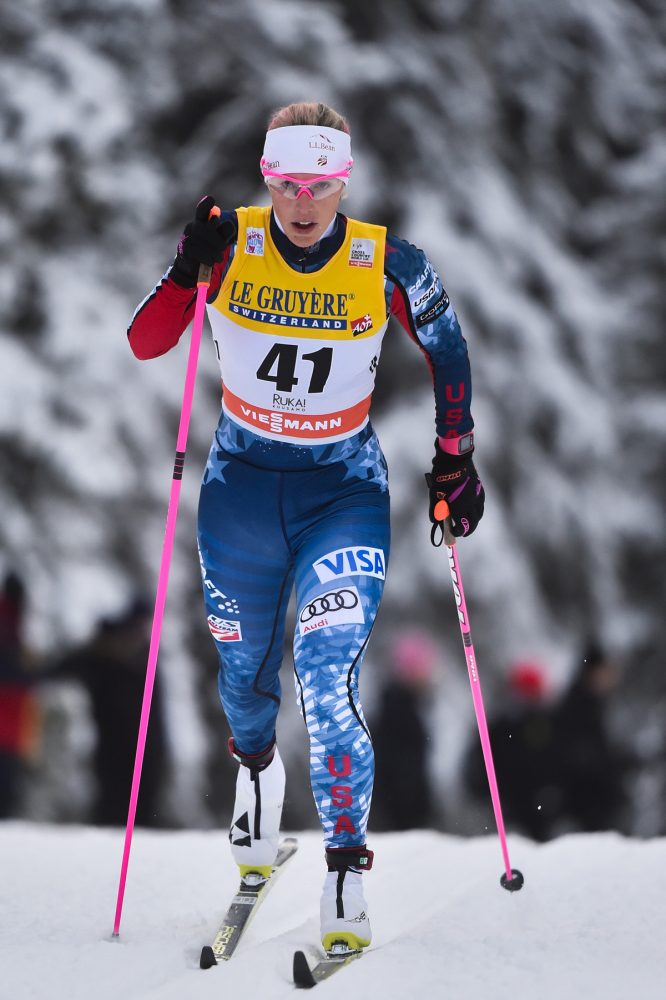
“That’s probably the best thing we can do,” Harvey said. “It’s better when we do something collectively. As one individual I think you’re wasting more energy than anything else, but collectively it’s good. One athlete on your own, I don’t know how far you can go.”
As the cross-country athlete representative to FIS, American four-time Olympian Kikkan Randall is trying to organize some of the athlete responses and leverage the federation to act on the McLaren Report.
“There’s a lot of discussion,” Randall said. “Again, just everyone kind of saying, like, ‘We want to do something about this,’ and especially throw our support behind making WADA a stronger, more independent body. Everyone’s sad, but excited to try to figure it out… I hope this is an opportunity for the world to wake up a little bit, and recognize that a massive change needs to happen. You know, I think the athletes really want to all come together to find some positive solutions.”
Others, too, were more willing to spend some of their energy advocating for change.
“I think the power the athletes have– we want to make sure FIS and the IOC do what they need to do to make this a level playing field and a fair playing field,” Newell said. “You know it’s no secret that it is not in FIS’s best interest to make a big splash about this. That’s why those athletes are out there still racing when they are under suspicion. It’s because FIS doesn’t want to say no, we don’t want you out here. They don’t want to bring attention to the fact that there’s widespread cheating going on in the sport.”
Athletes speaking out could change that equation.
“I think if anything the athletes can just put pressure on FIS to actually, you know, to use the swift hand of justice when it needs to be used,” Newell said.
“I think we have to be honest and voice how we feel,” Kershaw agreed. “The sad reality is, yeah, they say it’s for the athletes. And it is fun. This is all for us. We get to put on a show. But it’s a business, too. And people are concerned with keeping sponsors and keeping a clean image, so every once in a while athletes can be sort of pawns in the whole game. So I think all we can do really is be true to ourselves and voice our opinions.
“Sport is a privilege,” Kershaw concluded. “It’s not your right to compete in sport. I think that until we have lifetime bans for things like EPO, human growth hormone, and blood doping, those sorts of things, I think we will see more of this, sadly. It makes me sick to my stomach.”
Chelsea Little
Chelsea Little is FasterSkier's Editor-At-Large. A former racer at Ford Sayre, Dartmouth College and the Craftsbury Green Racing Project, she is a PhD candidate in aquatic ecology in the @Altermatt_lab at Eawag, the Swiss Federal Institute of Aquatic Science and Technology in Zurich, Switzerland. You can follow her on twitter @ChelskiLittle.



